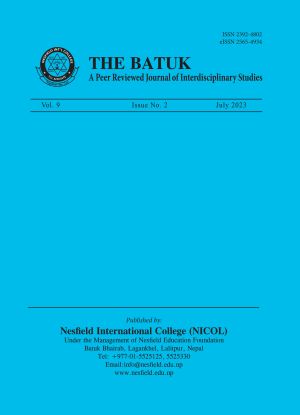Service Quality and Students' Satisfaction of Management Campuses of Kathmandu Valley
DOI:
https://doi.org/10.3126/batuk.v9i2.57022Keywords:
expectation, perception, service quality, Gap model, customers satisfactionAbstract
Service quality is a campus strategic tool for increasing student satisfaction. This study was conducted to examine the service quality of management campus from student's perspectives and to assess the relationship and impact of reliability, responsiveness, assurance, empathy and tangible dimensions on satisfaction. A total of 314 management students from bachelor (BBS) and master level (MBS) of management program of five constituent campuses of Tribhuvan University inside Kathmandu Valley were taken through using simple random sampling method. Based on SERVEQUAL gap model developed by the Parasuraman et al. (1985, 1988a), a set of 5-point Likert scale questionnaire was administered to collect data. Result of the result found a poor service quality or negative mean gap in reliability, responsiveness, assurance and tangible dimensions. A strong significant negative impact of mean expectation of responsive dimension was found on service quality gap. On the other hand, mean perception of tangible dimension had strong positive impact on service quality gap. Result of the study emphasizes on the improvement of quality dimensions of management campuses so as to satisfy students and get strategic advantage in this competitive marketplace.
Downloads
Downloads
Published
How to Cite
Issue
Section
License
Copyright (c) 2023 Nesfield International College

This work is licensed under a Creative Commons Attribution-NonCommercial 4.0 International License.
This license enables reusers to distribute, remix, adapt, and build upon the material in any medium or format for noncommercial purposes only, and only so long as attribution is given to the creator.




